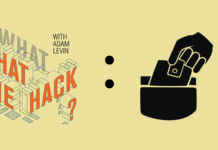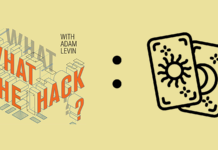

I commissioned a poll last month to sample, among other things, people’s attitudes about identity theft. I was both surprised and disappointed to see that 4 of 10 people surveyed believe that the threat of identity theft is more a product of marketers selling identity monitoring and protection services than a real problem.
The results in a follow up poll we took in the past two weeks are markedly different. Almost 70 percent of the people we surveyed indicated that their biggest concern when traveling is becoming a victim of identity theft.
Make no mistake my friends — the threat of identity theft is very real. The damage can be way beyond dollars and cents. Depending upon the form of the victimization, your health and life can be jeopardized. Not a good thing when you’re home; far worse when you’re on a trip.
Plain and simple, when we travel, we are distracted: thinking about the deal, the beach, the mountains, or the waterslide. Identity thieves wait for moments of distraction, because distraction equals vulnerability. Then they strike.
Before you take that next long business trip or vacation, here are some things you should do to better protect yourself against identity theft:
Before you go to the airport, ship terminal, or hit the road:
- Scan important documents and store them in a secure online depositary (also known as the cloud) or an encrypted thumb-drive. If you lose those documents that confirm you are who you say you are, either downloading an encrypted thumb-drive or accessing an online repository will allow you to more easily retrieve copies of your passport, driver’s license, visa or other critical identification information wherever you are. You should have this information not only for you but for others who might be traveling with you – like your kids.
- STEP it up – Enroll in the Smart Traveler Enrollment Program. The STEP website provides extensive information for travelers on topics such as travel alerts and restrictions; visas and vaccinations; crime statistics, national stability, road conditions, local laws, and embassy contacts.
- Leave home without this card – your Social Security Card that is. And, weed your wallet – don’t bring your entire inventory of debit and credit cards with you. This means that if you lose one or all of them, you will have fewer calls to make and less damage to clean up.
- Put your mail “on hold.” Why leave mail overflowing from your mailbox? This is like a flashing neon sign for burglars and identity thieves saying “rob me!” Either take a trip to the post office or go online.
- Make your home look like someone is there. Get a friend or family member (you need to really trust them since a significant portion of identity theft is committed by folks we either know or love) to retrieve your newspapers, mail and marketing fliers daily so your empty castle does not become a magnet, without a moat, for the bad guys.
While you are away
- Be careful how and where you carry your purse or wallet. Pickpockets are waiting to lend you a hand – or “flip you the bird” as they drive away with your cash and credit cards.
- Use the hotel safe. Believe it or not, there are some people who actually choose hotels based upon whether or not there are room safes, which are still not as secure as the big hotel safes that sit behind the front desk. Put your laptop, cash, credit cards, passports and any other sensitive documents in the safe before you leave your room to go to the pool, the beach, dinner, or touring the town. Oh, and don’t lock your wallet in the glove compartment of your car – thieves have already figured that one out.
- Beware of public computers or WiFi. Really try to control your “I need it now” impulses when you feel the urge to do online banking, shopping or check your email accounts. Public computers could have been infected with malware like keystroke logging devices. This means that when you go online, in addition to simply browsing and doing what you do, you are also transmitting; or your information is being captured and stored for retrieval by those who really want to be you just long enough to destroy you. And carelessly logging on Wifi in public places could expose your activities on your own laptop to hackers who want to use your personal information for their personal gain. Whenever you go online, use an encrypted internet connection. Finding one may require a bit of research, but it’s worth the effort.
- You really don’t need to share “the moment” through Facebook, Twitter, or other social networking sites with rest of the known (and unknown) world. I understand the desperate need to share all aspects of your journey in exquisite detail, especially the photographic memories of your adventure (while you are creating those memories), with those who clearly aren’t having half as much fun as you because they’re not with you. Unfortunately, every time you show and tell someone where you are, what you’re doing and how long you will be away from home doing it – you are telling them where you are not (and they may be willing to bet you don’t have a house sitter). An unprotected house is manna from Heaven for those who would really like to permanently “borrow” your sensitive unsecured documents, furniture, furnishings, art, electronics, jewelry and automobiles and then monetize them for themselves.
I want you to have a successful business trip or fabulous and memorable vacation. I also want you to come home to find everything that you had before you left, including your identity
Happy Trails!
First published on Forbes.com









